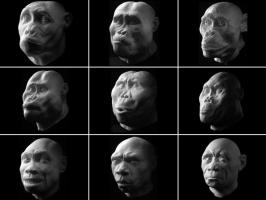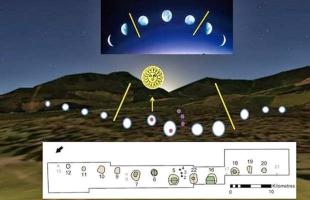Copy Link
Add to Bookmark
Report
AIList Digest Volume 6 Issue 044

AIList Digest Tuesday, 1 Mar 1988 Volume 6 : Issue 44
Today's Topics:
Review - Spang Robinson V4 N1
Journal - Experimental and Theoretical Artificial Intelligence
----------------------------------------------------------------------
Date: Sat, 27 Feb 88 21:54:02 CST
From: smu!leff@uunet.UU.NET (Laurence Leff)
Subject: Review - Spang Robinson V4 N1
Spang Robinson Report on Artificial Intelligence, Volume 4, No. 1
January 1988
Lead Article on 1988, the Vendor's Perspective
New Product from Artificial Intelligence Corporation:
Knowledge Base Management System, IBM mainframe environment with linkage
to IBM databases, written in C, can be combined with Intellect 400 to
give natural language capability
Bachman/Re-Engineering
New product to do reverse engineering of programs and is targetted at
maintenance. Completed third round of financing after market crash.
Symbolics gets 60% of its revenues from government and aerospace markets.
Symbolics will come out with a multi-processor, twenty-five times more
powerful than current systems.
DEC is now the leading vendor selling standard machines for AI use.
Units Sold to date for various companies:
Aion Corporation 550+
Artificial Intelligence Intellect 550
Gold Hill Computers
Goldworks 500+
Developer Series 1,700+
Golden Common Lisp 9,000+
Run-time Licenses 30,000+
Hummingboards 35-60 boards/month
Inference Corporation Art 700+
Neuron Data, Nexpert and Nexpert Object 1750+
Sterling Wentworth (Planman financial expert system, Next5 and BusinessPlan
Insurance Applications 1000
Symbolics 4000
Digital Equipment 5000 units for AI
________________________________________________________________________________
Expert Systems for End Users
Human Intellect Sells
a system to assist in connecting two RS-232 connectors
a tax consulting expert system to help decide how to recognize revenue
an expert system to help write a personnel policy for a business
________________________________________________________________________________
Review of Mind Path Technologies two videotape instruction system for
new users:
It help determine expert system
opportunities and then has a tutorial with an expert system shell or demo.
Cost is $495 with demo program or $795 with expert system shell included.
________________________________________________________________________________
Aion Corporation has granted McCormick and Dodge rights to use its expert
system shell.
Wisdom Systems sells an object-oriented design logic base with three-dimensional
shapes. It provides automatic bills of materials and manufacturing
work orders.
Digital Equipment is now selling an enhanced version of OPS5 that
allows interfacing to C and Ada.
Mind Path Technologies has developed an expert system for creating intelligent
electronic forms.
Franz Inc. has signed a contract to implement a Common Lisp on Cray
Supercomputers.
Knowledge Garden is selling a Stock Expert that includes the procedures
of the National Association of Investment Clubs.
------------------------------
Date: Mon, 29 Feb 88 16:54:15 MST
From: yorick%nmsu.csnet@RELAY.CS.NET
Subject: Journal - Experimental and Theoretical Artificial Intelligence
Call for Papers: The Journal of Experimental and Theoretical
Artificial Intelligence.
Eric Dietrich and Chris Fields, Editors.
Computing Research Laboratory
Box 30001/3CRL
New Mexico State University
Las Cruces, NM 88003-0001
USA
The Journal of Experimental and Theoretical Artificial Intelligence
(JETAI), a new journal dedicated to the advancement of AI as a
scientific discipline, will be launched by Taylor and Francis, Ltd. in
January, 1989. We would like to invite researchers in all areas of AI
to submit papers for publication in the first volume.
A statement of the aims and scope of JETAI as well as a statement of
instructions for authors is included below. JETAI will publish a
broad range of AI research. We will preferentially publish relatively
short papers, and will strive to maintain a three-month turn-around
time between submission and a publication decision. Our intent is for
JETAI to provide a forum for active, timely discussion of
experimental, theoretical, and methodological issues in AI research.
Papers should report work of interest to a broad cross-section of the
AI research community. The clarity with which the theoretical or
methodological motivation of the research is presented, and with which
the results of the research are discussed, will be a principal
criterion by which the appropriateness of a paper for publication in
JETAI will be assessed.
The focus of JETAI on the development of a scientific methodology for
AI will be reflected in its editorial policy. We are primarily
interested in papers of the following three types: 1) reports of
research in which AI computer programs are employed as experimental
tests of hypotheses about intelligence and cognition, especially if
the results show that a particular hypothesis must be ruled out; 2)
papers describing logical calculi and other mathematical formalisms,
and using these formalisms to formulate hypotheses and design
experiments; and 3) critical discussions of methodological issues in
the foundations of artificial intelligence.
Please feel free to submit either a full paper, a theoretical or
experimental note, or a commentary. To be considered for inclusion in
the first issue, your contribution should reach us by June 1, 1988.
JETAI Aims and Scope.
The aim of JETAI is to advance scientific research in AI by
providing a public forum for the presentation, evaluation, and
criticism of research results, the discussion of methodological
issues, and the communication of positions, preliminary findings,
and research directions. Work in all subfields of AI research,
including work on problem solving, perception, learning,
knowledge representation and memory, and neural system modeling
will be within the scope of JETAI.
JETAI's contribution to advancing AI as a scientific discipline will
be threefold. First, JETAI will, through editorial statements and its
editorial policy, encourage AI research that adopts a scientific,
rather than an engineering methodology. In particular, JETAI will
publish papers that advance precise and well-formulated computational
theories of particular aspects of intelligence, and papers that report
well-designed experimental tests of such theories, with an emphasis on
those that employ programs as the vehicles with which experiments are
carried out. Second, JETAI will publish papers reporting research
relevant to the computational understanding of intelligence regardless
of their disciplinary origin; e.g. JETAI will publish papers
describing systems-theoretic or neural-modeling research on
intelligence as well as more conventional, symbolic AI research.
JETAI will, moreover, encourage the submission of papers that attempt
to integrate the results of research carried out in different
disciplinary styles. Finally, JETAI will provide a forum for the
discussion of foundational and methodological issues in AI research,
and for critical discussions of results and techniques published
either in JETAI or elsewhere in the AI or cognitive science
literature. Such discussion is especially important in young
sciences, such as AI, that have grown from a multidisciplinary base.
JETAI will not publish papers describing applications of AI methods or
techniques in new domains, except when such applications are of
particular scientific or methodological interest. All submissions to
JETAI should include explicit statements of the experimental,
theoretical, or methodological interest of the work, and of the issues
that are left unresolved.
JETAI will publish four types of papers: research papers, target
articles with associated commentary, theoretical or critical notes,
and refereed position papers. The first category includes papers
reporting results of experimental, theoretical, or methodological
research, i.e. the types of papers standardly published in archival
journals. The second category includes either submitted or invited
papers advancing controversial positions, with associated commentary
from researchers in the relevant fields. The third category comprises
short papers reporting research results of immediate interest and
critical papers in which particular theoretical or experimental
results or methodological issues are discussed. The fourth category
comprises papers advancing positions on significant issues, proposing
research directions, or describing preliminary findings that may be
incomplete, but nonetheless of interest to the community. It is
anticipated that research papers and notes will be published in every
issue, and that a target article with associated commentary will be
published at least once per volume.
Instructions for Authors (1st Volume)
1. The original manuscript and two clear copies should be
submitted to:
Editor
Journal of Experimental and Theoretical Artificial Intelligence
Computing Research Laboratory
Box 30001/3CRL
New Mexico State University
Las Cruces, NM 88003-0001
USA
All papers will be refereed by at least two external reviewers,
as well as by one of the editors.
2. All papers must be in English. The entire manuscript should
be typed on one side only of plain paper, either A4 or 8.5 x 11
inch, with double spacing used throughout.
3. The first page of the manuscript should carry the title, the
names, institutional addresses, and institutional telephone
numbers of the authors, and a short title of no more than 50
characters (including spaces) to be used as a running head. The
second page of the manuscript should carry an abstract of about
200 words. The remainder of the text should not exceed 30 double
spaced pages, including references but excluding figures and
tables. All figures and tables must be referred to by number in
the text.
4. An original set of professional quality figures should
accompany the manuscript. Line drawing may be India ink
originals or glossy prints. Halftone illustrations must be
submitted as glossy prints. Illustrations cannot be printed in color.
5. Tables should be typed on separate pages, which should
accompany the text.
6. The text should be written in third person to facilitate blind
reviewing. The names of the authors or their institutions should
appear only on the title page.
7. The name-date style should be used for all references. All
authors' names should be included in the reference list. Journal
names should not be abbreviated. Inclusive page numbers must be given
for all references to articles in journals, proceedings volumes, or
books. With the exception of theses or dissertations, unpublished
works should not be included as references.
8. Footnotes may not be used. Endnotes may be used if necessary;
they should be collected on separate sheets at the end of the
text.
9. Fifty free offprints will be provided to the first author of
each paper. There will be no page charges.
------------------------------
End of AIList Digest
********************























